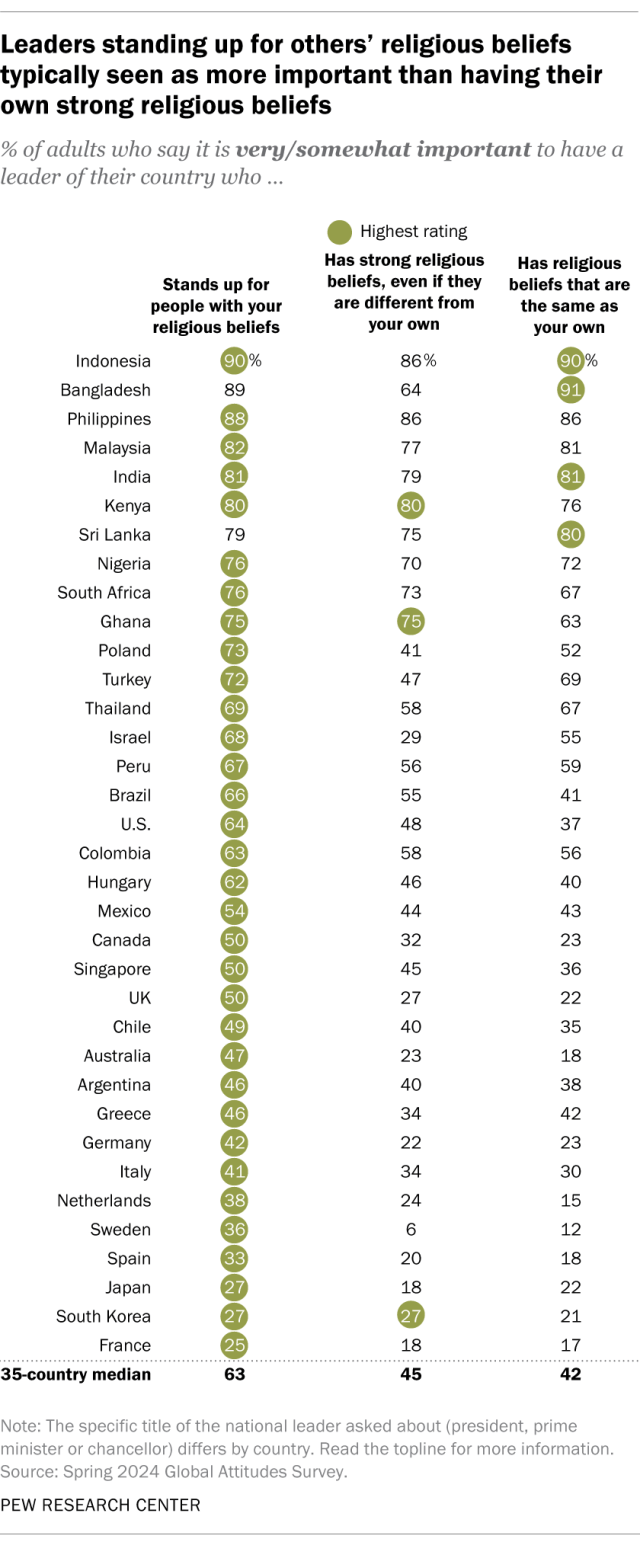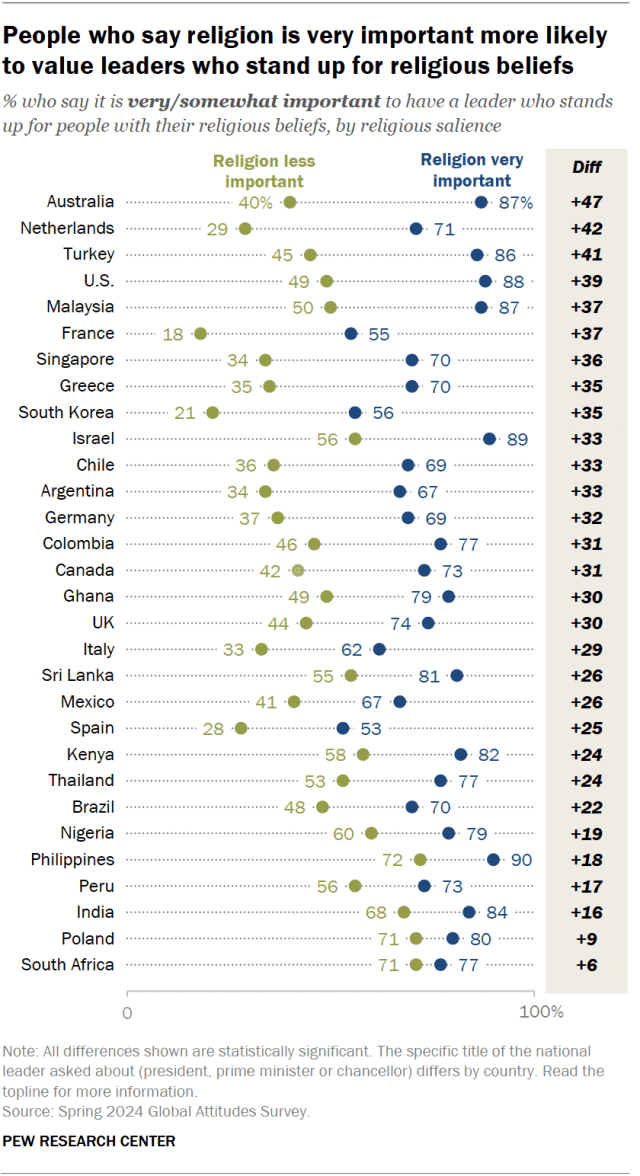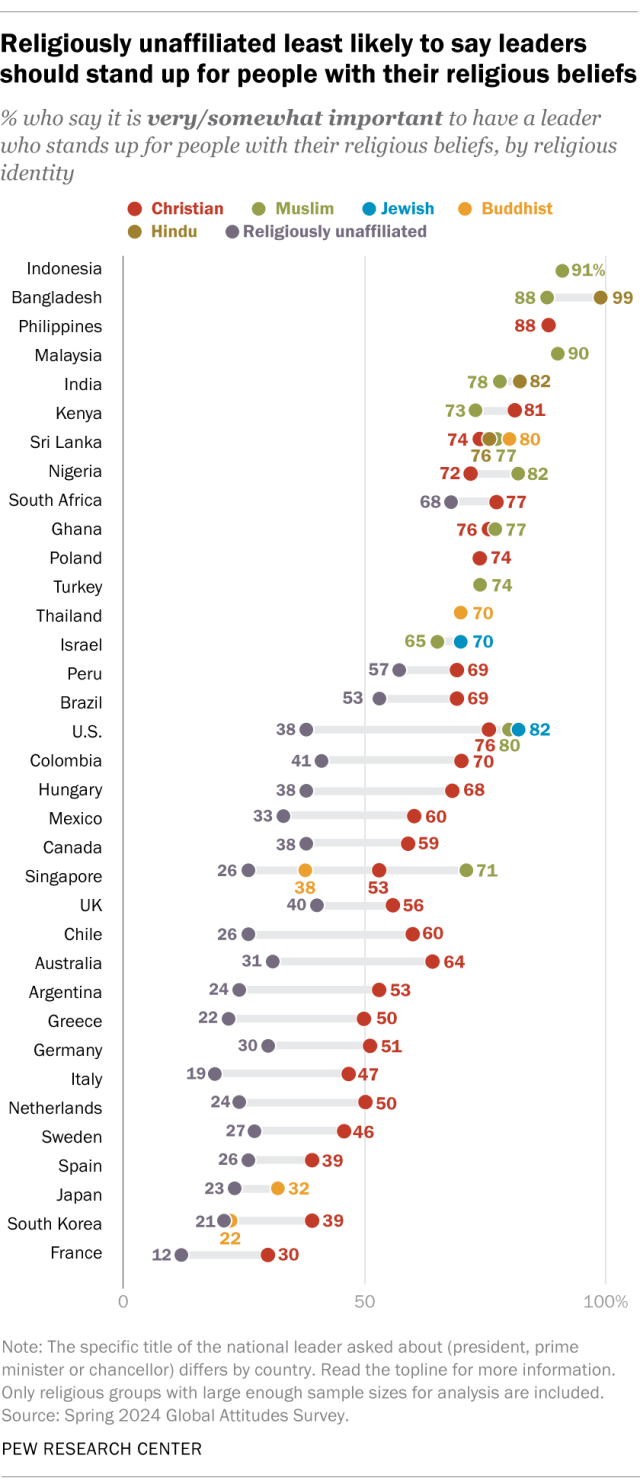(ZENIT News / Washington, DC, 29.08.2024).- The relationship between religion and political leadership continues being a complex and diverse subject worldwide. According to a recent Pew Research Center survey in 35 countries, opinions on the importance of religion in national leaders vary widely according to region, religion and other factors, such as education and ideology.
Defense of Religious Beliefs: A Universal Value
Worldwide, people seem to value more a leader that defends the religious beliefs of his community, even more than the possibility that that leader shares the same religious beliefs or has strong religious convictions. For instance, in the United States, 64% of adults consider it important that the President defend the people that share his religious beliefs, whereas only 37% think that it is crucial that the President have the same religious beliefs they have.

This pattern is repeated in many countries, although with different levels of intensity. In Indonesia, where religion is fundamental in the daily life of the majority, an impressive 94% of adults say it’s important that their leader has strong religious beliefs, even if they are different from their own. This focus on the defense of religious values, more than the exact coincidence of beliefs, underscores a global priority: citizens seek leaders that protect and promote the moral fabric of their society, beyond exact concordance on dogmas.
The Role of Religion in Different Cultures
The results of the survey also highlight how the importance of religion in the leadership varies according to the culture. In Southeast Asian countries, such as Indonesia, Bangladesh and the Philippines, close to 90% of adults believe it’s essential that their leader defend their religious beliefs. In contrast, in more secularized societies, such as France and Japan, only a minority of the population shares this opinion, which reflects the lesser influence of religion in public life.
On the other hand, in Europe and parts of East Asia, the number of people that consider it important that a leader have strong religious beliefs is much less. In Sweden, for instance, only 6% of adults believe that it’s necessary that their Prime Minister have firm religious convictions, which suggests that in highly secularized societies, a leader’s religious beliefs are less relevant for the electorate.
Differences According to Religion and Education
The survey revealed significant differences according to the religious affiliation of those polled. For instance, almost all Hindus in Bangladesh consider it important that their Prime Minister defend the community’s religious beliefs. However, among Japanese Buddhists, only 32% think it’s crucial that their leader share their religious beliefs, a much smaller number than in Buddhist countries such as Thailand.

Moreover, education and political ideology also play an important role. In Greece, for instance, people with higher educational levels are less prone to consider crucial the religious beliefs of their leader, compared with those of less education. This pattern is repeated in several countries, indicating that the educational level can influence the perception of the importance of religion in politics.
Youth and Religious Perspectives
An interesting tendency is observed among young adults, especially in Latin America, where those younger than 40 are less prone to value the religious beliefs of a leader, compared with the older generations. In Chile, for instance, only 42% of young adults believe it’s important that the President defend religious beliefs, compared with 54% of older adults.
Religion and Leadership in a Diverse World
The Pew Research Center study reveals a diverse scene in regard to how people perceive the importance of religion in their leaders. Whereas in some countries, especially in those where religion plays a central role in daily life, the religious beliefs of the leader are crucial, in other parts of the world, particularly in more secularized societies, religion seems to play a much lesser role in the evaluation of the political leadership.

This mosaic of opinions underscores the complexity of the relationship between religion and politics, where citizens’ expectations and values are profoundly influenced by their cultural context, their educational level and their political ideology. Ultimately, although religion continues being an important factor in the election of leaders in many parts of the world, the way in which this relationship is valued varies enormously from one society to another.



